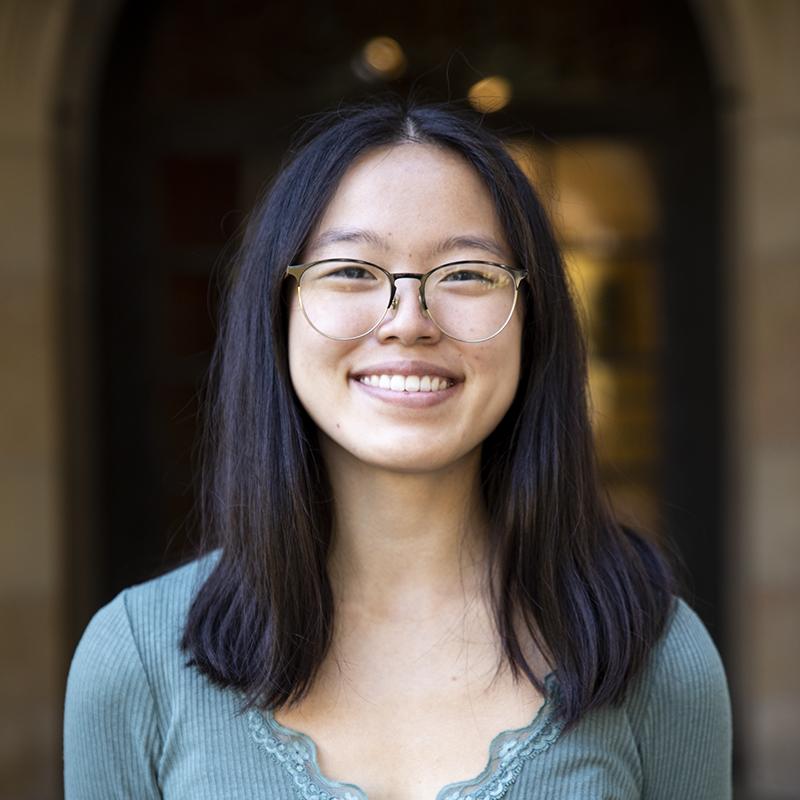Musicology guest lecturer to discuss revival of Stoic philosophy as psychotherapy

Melinda Latour, an assistant professor of musicology at Tufts University, will examine the vocal performance of stoic philosophy as psychotherapy in her upcoming guest lecture at the UCLA Herb Alpert School of Music. The branch of therapy has historically aided people during tumultuous times, she said. (Courtesy of Mono Shinzawa)
"Music as Psychotherapy in Early Modern France"
Schoenberg Music Building
Thursday
Free

By Vivian Xu
Jan. 15, 2020 10:59 p.m.
Music from half a millennium ago is making a comeback.
In a guest lecture at the UCLA Herb Alpert School of Music on Thursday, Melinda Latour, an alumna and assistant professor of musicology at Tufts University, will examine the vocal performance of Stoic philosophy as psychotherapy. This branch of therapy uses aspects of psychology to treat emotional problems. During the Renaissance, Latour said the practice helped its followers combat a tumultuous and stressful time by providing a way to block out negative feelings.
“There’s an actual psychological element to this therapy and it’s being circulated and administered in a self-guided way through vocal music,” Latour said. “We can see the composers setting these texts, that are quite clearly paraphrases of Stoic philosophy (to music). They are using the music in a very active way to teach a moral.”
[Related: Club composes harmonious community through shared interest in musical meditation]
Stoicism emerged as a philosophy in ancient Greece and ongoing religious war during the Renaissance spurred its revival, she said. During such tumultuous times, Latour said there was an increasing population of people reading Stoic scholars like Seneca and Epictetus. She said such texts advocated for methodically altering one’s mindset to numb extreme feelings – like anxiety and fear – by moderating emotions.
Although the texts alone have some therapeutic value, as they teach the reader how to naturalize his or her fears, the added musical layer furthers the healing effect, Latour said. Composers at the time attempted to illustrate a text through music, she said, by capturing the mood of specific words or phrases with corresponding rhythms and pitches. For example, harmonic dissonance may indicate a provocative question, such as “Is the world good?” with the intention of making the listener uncomfortable, Latour said.
The universality of such questions about existence and morality were integral to Stoicism’s revival and the subsequent musical performance, she said. Groups of singers performed the texts together, which Latour said can be likened to group therapy, as the participants worked collaboratively to reshape their world view. Most of the music was written in two- or eight-part harmonies, Latour said, which made it legible to a commoner with rudimentary musical training. The accessibility of these texts facilitated group healing sessions from a chaotic environment of war and civil discord, she said.
“There is both an individual and collective kind of healing therapy that’s happening,” Latour said. “They’re reading these Stoics specifically as a kind of remedy for the troubles of the time. They’re looking for a remedy to heal internal fear, anxiety and also a way to heal the community and civil problems.”
[Related: UCLA jazz institute’s jam session lets musicians and audience members perform]
The use of music as a healing practice has been prevalent in its history, Latour said. Now, in modern times, music therapy is becoming increasingly popular in a clinical setting, like hospitals. Jenna Bollard, the expressive arts therapies manager at Mattel Children’s Hospital, said many of her patients have benefited from the therapeutic effect of engaging in music composition or guided music relaxation sessions. Many patients comment on how the therapy has empowered them during challenging or stressful times, she said.
“We’ve heard that music has given (families) hope and that it’s so nice to focus on the (healthy) parts of their child rather than just focusing on their illness,” Bollard said. “It’s a release for everyone and it gives them something to look forward to during the day. It diverts attention away from distressing and stressful procedures.”
Modern music therapy can take place in a variety of settings – not just clinical – and yield similar effects on its practitioners. Gaura Diaz, a third-year linguistics major and member of the Music Meditation Club, said his practice of mantra meditation allowed him to engineer his life for a greater purpose and brought him inner peace.
“You just free yourself to the music and it brings you bliss,” Diaz said. “I would go throughout the day still singing the mantra because it would make me feel so good … I (have found) meaningful relationships and (have learned) new things from everyday experiences. It gives me the motivation to always be happy and friendly, and most importantly, be compassionate.”
Music therapy’s psychological benefits are still applicable nearly five hundred years later, as Latour said humans are still concerned with similar dilemmas: handling their emotions and reacting to their environment. In a world that is overstimulated and leaves little time for self-reflection, she said she notices yet another revival of Stoicism.
Modern day Stoicism manifests itself in cognitive behavioral therapy, Latour said, which encourages the practitioner to recognize harmful thoughts and actively adjust them in order to shift their perspective. This revival continues to question how people can get rid of unwanted emotions and deal with unpleasant feelings, Latour said. The intense demands of modern life lead many to deal with an overwhelming amount of thoughts at a time, making it increasingly difficult to live in the moment.
“One of the things I found so deeply moving about ancient Stoicism … is that it addresses exactly this question,” Latour said. “How do you learn to be present and find joy in the present moment, even if the moment is not the perfect one? How do you actually learn to find joy, even in the midst of this everyday kind of existence?”


